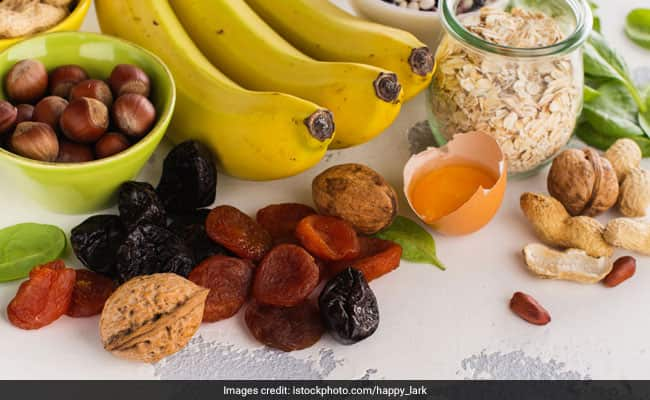Consuming nutritious food encourages the growth of "good" bacteria, which in turn has a positive impact on the synthesis of neurotransmitters.

Mental Health: Eat a well-balanced diet to ensure better mental health
Your sense of well-being and mood can be enhanced by eating a nutritious diet that is well-balanced and rich in veggies. We often consider the brain to be separate from the rest of the body, yet overall wellness refers to feeling good from head to toe.
What's the link between diet and mental health?
Our diet and our mental health have a complicated relationship. But research indicates a connection between our diet and how we feel. The close connection between your brain and gastrointestinal tract frequently referred to as the second brain and is what causes the link between diet and emotions.
Millions of bacteria reside in your GI tract, which has an impact on the creation of neurotransmitters, which are chemicals that constantly convey information from the gut to the brain. Two prevalent examples are dopamine and serotonin.
Consuming nutritious food encourages the growth of "good" bacteria, which in turn has a positive impact on the synthesis of neurotransmitters. On the other side, a consistent diet of junk food can result in inflammation that reduces production. Your brain receives these encouraging messages clearly when neurotransmitter synthesis is strong, and your emotions are a reflection of that. However, if the output is off, your mood could suffer as well.
How to ensure a healthy link between the two?
There are various diet changes that can improve or worsen your mental health. Here are some points to remember:
1. Eat consistently
Eating healthy and eating consistently can prevent a dip in blood sugar, which can make you feel lethargic and irritable. Lack of proper diet can affect energy levels and might also alter hormonal levels.
2. Stay hydrated
Your mood, energy level, and focus can all be negatively impacted by even minor dehydration. Dehydration might even lead to headaches that can further irritate you. You are expected to consume about 2 litres of water daily.
3. Eat enough protein
Protein should be a part of every meal. It comprises an amino acid the brain processes to assist with mood regulation. Some easy way to increase your protein intake is to consume milk and eggs for breakfast regularly. Along with this, try and incorporate protein-rich meats and other foods in your meals.
4. Pay attention to gut health
Take care of the health of your stomach. When you're stressed, your gut may speed up or slow down as a reflection of how you're feeling. Fruit, vegetables, legumes, and probiotics are all good foods for your digestive system.
5. Watch caffeine intake
Be mindful of how your mood may be affected by caffeine. When consumed right before bed, it can interfere with sleep, and some people also report feeling agitated and anxious. Coffee, tea, cola, energy drinks, and chocolate all contain caffeine.
6. Consume the correct proportion of fats
For optimal brain function, you need to consume healthy fats. Olive oil, rapeseed oil, almonds, seeds, oily fish, avocados, milk, and eggs are a few examples of foods that include them. Trans fats should be avoided because they might be harmful to your heart health and mood. They are frequently found in processed or packaged meals.
7. Eat fresh
Increase your intake of fruits, veggies, and whole grains. They supply the vitamins and minerals that your body and brain require to remain healthy. Cooking food can reduce its nutritive value, especially if they are safe to consume raw.
Keep these things in mind when thinking of mental health and diet.
Disclaimer: This content including advice provides generic information only. It is in no way a substitute for a qualified medical opinion. Always consult a specialist or your own doctor for more information. NDTV does not claim responsibility for this information.
DoctorNDTV is the one stop site for all your health needs providing the most credible health information, health news and tips with expert advice on healthy living, diet plans, informative videos etc. You can get the most relevant and accurate info you need about health problems like diabetes, cancer, pregnancy, HIV and AIDS, weight loss and many other lifestyle diseases. We have a panel of over 350 experts who help us develop content by giving their valuable inputs and bringing to us the latest in the world of healthcare.














